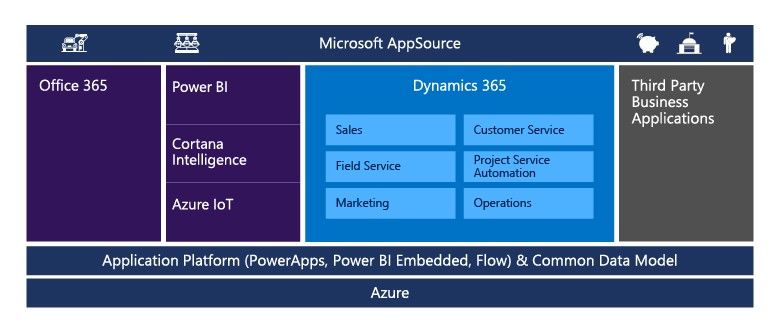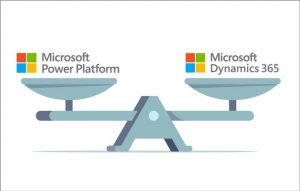With technological advancements, the difference between our analog and digital lives has disappeared today. This puts intense pressure on growing enterprises like yours to take initiatives on becoming digital and to get their customer experience (CX) right. From meeting customer expectations to creating customer journeys, there’s a fierce competition in turning one-time shoppers into loyal customers. Pulling this off, demands enterprises to embrace digital transformation with open arms.
Although enterprises want to begin with digital transformation, many are unsure of the right tools they need. Microsoft Dynamics 365 is an ultimate suite that offers the tools needed for substantial progress on the transformation journey. This blog post aims to deliver a deeper understanding of digital transformation with Microsoft 365.
Major challenges faced by growing enterprises
1. Lack of standardization
Every organization practices standardization to guarantee quality and productivity. However, many businesses build their processes around ad hoc requirements, without any enforcement. For such companies, embarking upon digital transformation may hit a major roadblock and result in compatibility and interoperability issues.
2. Disrupted customer service
Poor sales and services may bring a disaster to any organization, especially when the world is moving towards a customer-centric approach. Increasing customer demands, price wars, below-par sales and services can turn off customers. With such proceeding, organizations may lose out on their existing customers and might as well fail to attract new ones.
3. Undermined ROI value
Businesses that fail to justify ROI are unlikely to survive in the market. Therefore, enterprises must understand how business processes affect outcomes to calculate ROI. Also, the lack of reporting tools and processes fails to attribute expense-related correlations, impacting current success and future budget.
4. Absence of data insights
Several businesses take initiatives to alter customer experience with benefits that entice them. But, with the absence of data insights, they yield almost nil outcomes and fail to add values where needed. Data-driven insights are crucial for the future growth and development of organizations. It leads them to enhance revenue, reduce costs, accelerate efficiency and achieve quality improvements.
5. Poor risk management
Every organization is susceptible to unexpected events such as fluctuating exchange and interest rates, information breaches and equipment failures. Companies must guard against such risks with a risk management strategy in place. Without it, they cannot define their goals and objectives for the future.
6. Missing agile culture
One of the strongest competitive advantages relies on the ability to move rapidly and effectively with change management. Adopting an agile culture will make enterprises more adaptive, flexible, innovative and resilient when dealing with complexity and uncertainty.
Why enterprises should move towards digital transformation
Organizations must evolve to meet changing business landscapes to survive the competition. Adopting digital transformation accelerates customer experiences, enhances operational processes as well as business processes, competencies and models. Besides, it helps to fully leverage opportunities brought by digital technologies.
Digital investments should drive business requirements. Besides, business leaders and c-level executives want their IT teams to be result-oriented, leading innovation and deliver continuous improvements.

Source: https://www.capgemini.com
Why enterprises should choose Dynamics 365
Microsoft Dynamics 365 removes the barriers between data, business processes and customers by unifying ERP and CRM capabilities. It deeply integrates with Power BI, Cortana, LinkedIn and Office 365 as well as offers additional modules for marketing, customer service and other functions.
Dynamics 365 implementation gives managers the insights that are needed to make the right decisions at the right time. Using these insights, they can anticipate the needs of customers, identify new opportunities and bring new products to market in lesser time. Here are some benefits enterprises can expect by upgrading to D365:

Source: https://www.microsoft.com
1. Integrate enterprise-level applications
Unify multiple business applications including ERP, CRM and Office 365 with Dynamics 365 for flexible business solutions through one single platform.
2. Leverage new technologies
Dynamics 365 easily integrates with numerous technologies including IoT, Power BI, Azure Machine Learning and Cortana Intelligence to transform your business operations.
3. Create purpose-built processes
Leverage tools like Flow and Power Apps to customize your business processes with Dynamics 365.
4. Increase employee productivity
The unified system of Dynamics 365 gives employees a single point of reference to quickly access, navigate and locate information.
5. Enhance customer engagement
Dynamics 365 brings all customer-related information in one place, allowing organizations to leverage customer insights and deliver a personalized customer experience.
6. Optimize flexibility
Companies can focus on meeting the changing needs of clients by using a host of apps for specific roles like marketing, sales, finance, customer service, field service, retail, etc.
7. Enhance ERP functionalities
Track communications and interactions of customers using relationship insights, prioritize important tasks and focus on opportunities nearing closure using Outlook Client.
8. Reinvent products and business models
Dynamic 365 comprises intelligent capabilities that help enterprises to unlock data stored in silos, derive new insights, extend agility and reinvent products and business models.
Get ready for Dynamics 365
Technology trends are changing at a fast pace and enterprises need to be extremely agile to overcome the challenges on the way as well as deliver exceptional customer experiences. Dynamics 365 is one such enterprise suite that is designed with digital transformation capabilities. It aims to help organizations evolve with how they do business.
Get in touch with our consultants to discuss how you can leverage intelligent and unified applications to improve your business.






